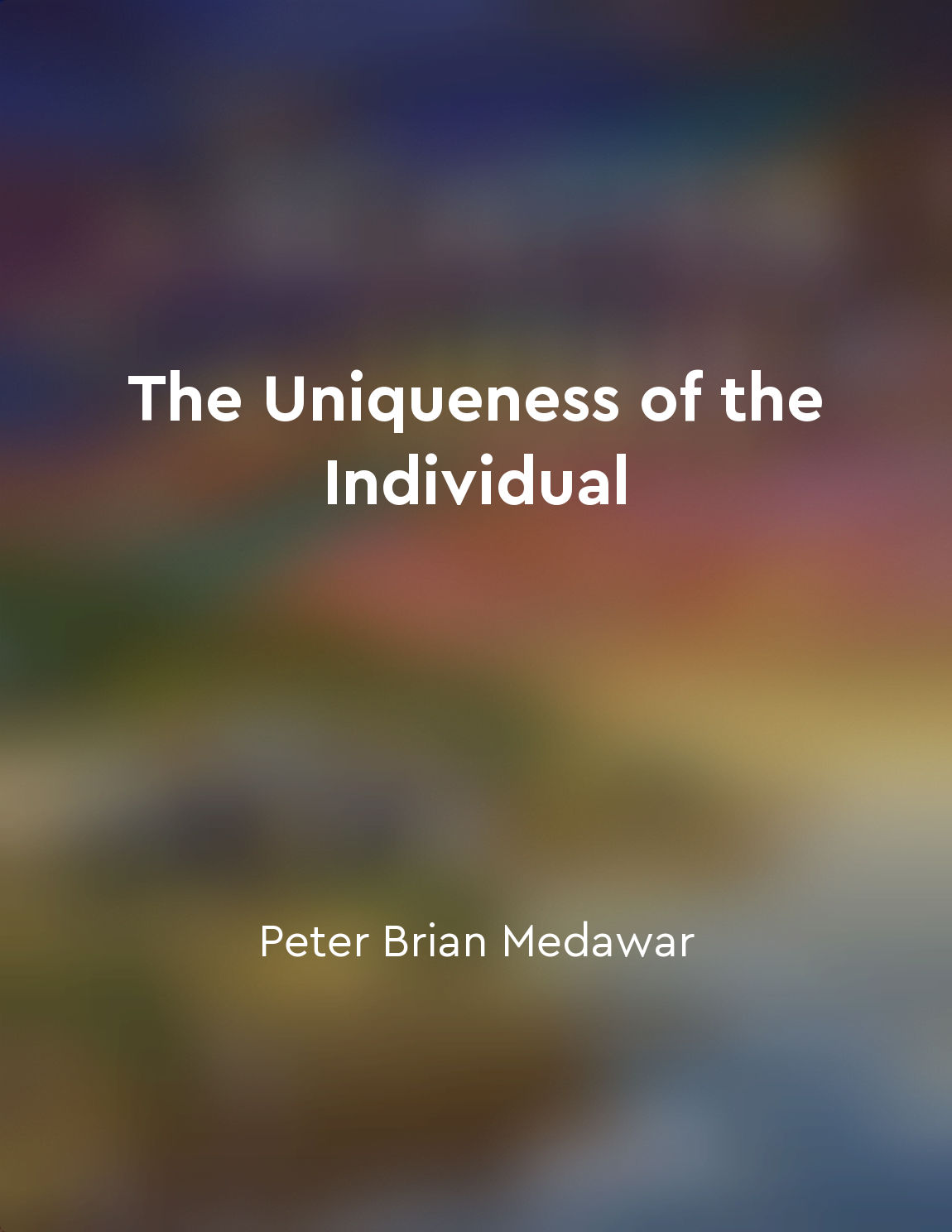Individuals must take responsibility for their own beliefs from "summary" of The Open Society and Its Enemies by Karl Raimund Popper
In a democratic society, individuals are called upon to think critically and evaluate their beliefs. They must not simply accept ideas without questioning them or seeking evidence to support them. Blindly following popular opinion or relying on authority figures to dictate one's beliefs is a dangerous path that can lead to the erosion of freedom and democracy. Each individual has a responsibility to engage in rational inquiry and to challenge their own assumptions. This means being willing to entertain alternative viewpoints, consider new evidence, and revise one's beliefs in light of new information. It requires a willingness to be open-minded and humble, recognizing that one's beliefs are fallible and subject to error. Taking responsibility for one's beliefs also entails being aware of the potential consequences of those beliefs. Ideas have power, and they can shape the course of history for better or for worse. Individuals must consider the impact of their beliefs on themselves and on society as a whole, and be prepared to defend and justify their beliefs if necessary. In a pluralistic society, where diverse perspectives and worldviews coexist, individuals must be able to navigate the marketplace of ideas with discernment and critical thinking. This requires a willingness to engage in civil discourse, to listen to others with respect and empathy, and to be open to the possibility of changing one's mind.- The responsibility for one's beliefs rests with the individual. It is a task that requires courage, intellectual honesty, and a commitment to truth and reason. By taking ownership of their beliefs and engaging in the ongoing process of critical reflection and evaluation, individuals can contribute to the health and vitality of a democratic society.
Similar Posts

Individual uniqueness arises from genetic variation
In the intricate tapestry of life, each individual is a unique thread woven from the fabric of genetic variation. It is through...
The emergence of totalitarianism signals a crisis in civilization
The rise of totalitarianism is not merely a political development; it is a symptom of a deeper crisis that has taken root in ci...
Idea: Public opinion influences government decisions
The relationship between public opinion and government decisions is a complex and dynamic one, as explored in 'The Structural T...

Finding closure
The idea of finding closure is like hunting for a missing puzzle piece in a jumbled mess of emotions. It's that elusive moment ...
The decline of Christianity weakens Western values
The erosion of Christianity in the West has profound implications for the values that have underpinned Western civilization for...
The state should prioritize the wellbeing of all citizens
Socrates argues that the state has a duty to ensure the wellbeing of all its citizens. He believes that a just state should pri...
Intuition takes precedence over rational thought
In the moral domain, intuitions come first and reasoning is usually just a post-hoc construction made up on the fly, crafted to...
Give yourself time to think things through
It is essential to take a moment before making a decision. In the fast-paced world we live in, there is often pressure to act q...
Knowledge of the past informs the present
The understanding of the past is essential for comprehending the present. History is not merely a collection of facts and event...
Perceba o poder da assertividade em todas as áreas da vida
Imagine-se capaz de expressar suas opiniões de forma clara e objetiva, sem medo de desagradar os outros. Isso é o que a asserti...

